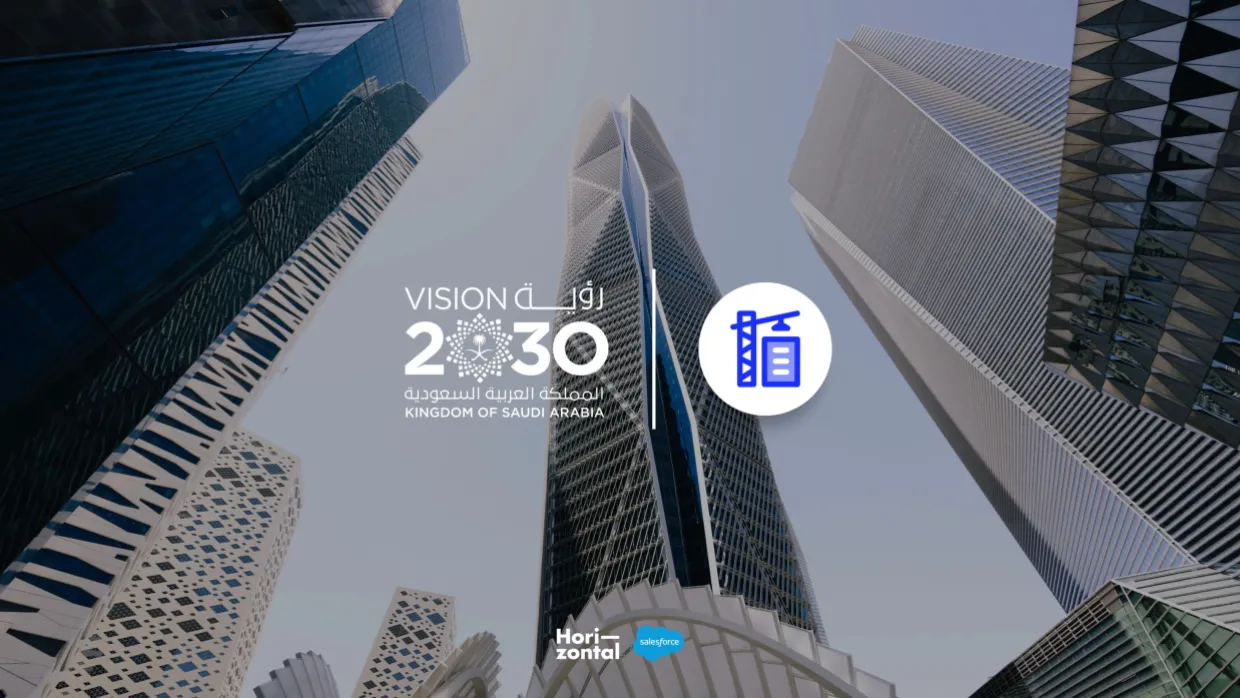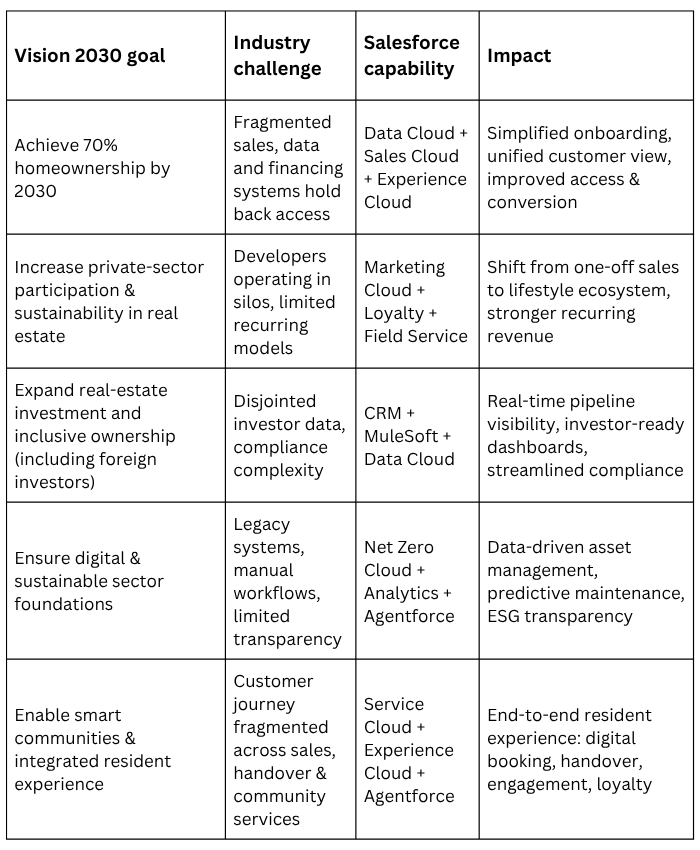Customer Experience
Re-Architecting Saudi Real Estate for the Experience Era

The Kingdom’s next real estate revolution won’t be defined by skylines, but by systems. Developers who connect data, design and intelligence will transform places to live, work and invest into connected ecosystems of experience.
By Joseph Bou Raad, KSA Country Manager, Horizontal Digital
Vision 2030 has ignited one of the most ambitious development cycles in the world –fueling new cities, districts and destinations that blend commerce, culture and community. The Kingdom isn’t just building physical spaces; it’s building ecosystems designed for connection, productivity and quality of life.
That ambition is reshaping every segment of the real estate market. The Saudi residential real estate sector alone was valued at over USD $72 billion in 2024 and is expected to nearly double by 2033. At the same time, the commercial real estate market – valued at USD 34.9 billion in 2024 – is forecast to reach USD 71 billion by 2030. Yet behind the extraordinary opportunity lies equal responsibility. As the Kingdom races toward Vision 2030, real estate’s biggest leap isn’t structural; it’s experiential.
The question is no longer how high can we build? but how connected can we become?
Developers must move beyond transactions to orchestrate connected experiences across residential, commercial and hospitality portfolios. The next advantage lies in how every space feels, functions and serves.
Three structural shifts reshaping the industry
1. A maturing and more inclusive market
Saudi Arabia’s real estate landscape is evolving rapidly, driven by new regulatory and structural reforms that are reshaping the market. A rent-freeze framework now caps annual rent increases, while new legislation allows foreign residents to purchase property – opening the market to a wider investor base and stabilizing rental dynamics. These changes are creating a more transparent, diversified and globally competitive ecosystem, attracting both institutional and individual investors.
2. Diversification beyond real-estate cycles
Developers are no longer relying on a single asset class for growth. Portfolios now span residential, commercial, hospitality and city-scale mixed-use developments, alongside adjacent ventures in retail, education, logistics and infrastructure. This diversification strengthens resilience, but it also adds complexity: multiple business lines, fragmented systems and mixed revenue models. To scale sustainably, data must move as effortlessly as customers do.
3. Capturing lifetime wallet value
Buyers, tenants and investors no longer purchase only a property; they buy into an experience ecosystem that extends across mortgages, retail, wellness, travel and entertainment. Every asset becomes an anchor for recurring revenue.To capture that value, developers need three ingredients: insight (data), orchestration (digital experiences) and personalization (AI-driven journeys).
The next frontier: Real estate as a service
As Saudi cities evolve into digital ecosystems, the line between developer, operator and lifestyle brand is blurring. Residents expect seamless digital experiences, flexible leases and personalized services. Investors expect transparency, liquidity and global access.
With Salesforce, developers can deliver both – powering a connected asset and customer architecture that transforms every building into a living system. In this new paradigm, success depends not only on what developers build, but on how intelligently and intuitively those assets perform and serve over time.
The competitive edge: a connected customer and asset stack
Real estate success in the next decade won’t be defined by who builds the most, but by who builds the smartest, with developments that are both data-driven and people-centric.
Most developers still operate sales, marketing, hospitality, community management and facilities as separate business units and systems. Yet customers see only one brand, one experience, one life. The winners will be those who connect them.
That’s where Salesforce becomes the connective layer uniting every corner of a developer’s business – transforming data, design and delivery into one intelligent ecosystem that powers the region’s Vision 2030 ambitions.
Saudi Arabia’s real estate goals are among the most ambitious in the world: raising home ownership to 70%, attracting foreign investment, driving digital transformation, and creating sustainable, human-centric cities. To get there, developers must connect every data point, every customer interaction and every community experience into a single intelligent flow.
How Salesforce powers Vision 2030’s next real estate cycle
The following examples show how Salesforce technologies align with Vision 2030’s real estate priorities, turning national goals into measurable, connected outcomes.

When these capabilities connect, developers move from builders of property to curators of experience – transforming every asset, interaction and space into a long-term relationship built on insight, service and trust.
A glimpse of 2030
A resident in a new smart community unlocks her apartment with facial recognition; her app automatically adjusts utilities to her preferences and suggests local events.
A property manager in one of the Kingdom’s next-generation business districts receives predictive maintenance alerts before an issue occurs.
A global investor monitors mixed portfolios across Saudi cities in real time, with live ESG data and yield insights at their fingertips.
This is real estate that thinks, learns and responds – where every square meter becomes a source of value and every interaction strengthens connection.
Because in the next growth cycle, real estate won’t just be built. It will be experienced, remembered and returned to.
About the author
Joseph Bou Raad is KSA Country Manager at Horizontal Digital, where he leads growth and innovation in Saudi Arabia’s real-estate and built-environment sectors. With over 15 years of experience in digital platforms and customer-experience transformation across the Middle East, Joseph has partnered with major developers and hospitality groups to deliver data-driven, AI-enabled engagement models. Based in Riyadh, he combines global technology expertise with deep local market insight to turn Vision 2030’s ambitions into measurable business outcomes.